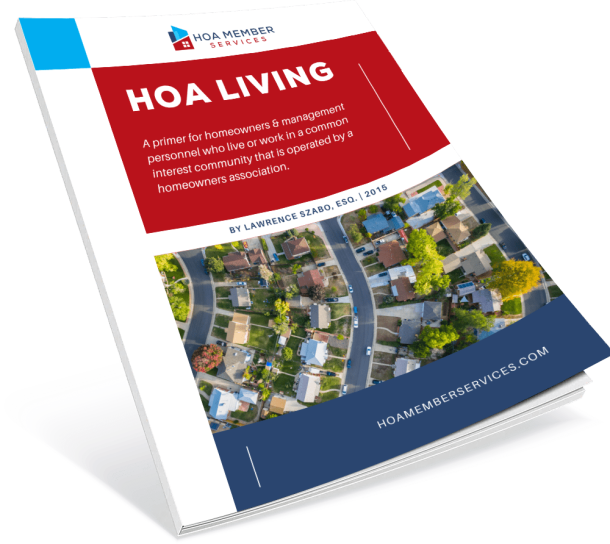Ever glanced at your homeowners’ association (HOA) fee statement and thought, ‘Is there any way I could pay less?’ If so, you’re definitely not alone.
The idea of negotiating HOA fees might seem as far-fetched as finding a pot of gold at the end of a rainbow, but here’s the kicker — it’s not entirely out of the question. Most people see HOA fees as a non-negotiable monthly burden, something set in stone. But is that really the case?
In this article, we’re tackling that very question: ‘Can you negotiate HOA fees?’ The quick answer? They’re typically not negotiable, but sometimes, with the right approach, they can be.
We’ll dive into why HOA fees are often seen as untouchable and then explore how you might be able to change that. So stick with us; you might just discover a few tips to ease that financial burden whether you’re a long-time homeowner or new to the neighborhood.

Understanding HOA Fees
When you hear about HOA (homeowners association) fees, your first thought might be, ‘Do I really have to pay for this?’ Many people share these sentiments, but there is more to HOA fees than meets the eye.
What Are HOA Fees?
So, what exactly are HOA fees? Think of them as your ticket to a well-maintained and often quite beautiful community.
Imagine waking up to perfectly manicured lawns, a sparkling community pool, and pristine sidewalks. You didn’t mow the lawn, clean the pool, or shovel the snow.
This is where HOA fees come into play. These are like a community potluck where everyone chips in to keep the neighborhood looking sharp and running smoothly.
HOA fees cover a wide range of expenses, from keeping the lawns green and the pool sparkling to ensuring the streets are well-lit and the sidewalks are in good shape.
They also pay for the insurance that covers shared spaces and sometimes even fund community events like block parties or holiday decorations.
Now, a lot of people think you can haggle over HOA fees like you might when buying a car. Unfortunately, that’s not the case. These fees are usually set by the HOA board and aren’t negotiable.
Types of HOA Fees
It’s essential to understand the types of HOA fees before you can find out if they’re negotiable or not. Let’s break down the types of HOA dues you might encounter.
- Regular DuesRegular dues are the consistent, often monthly or quarterly payments you make to cover the everyday expenses of your community. They fund the regular upkeep of common areas, pay for ongoing services like landscaping and security, and cover communal utilities.These fees ensure that your neighborhood remains a pleasant place to live without any major interruptions.
- Special AssessmentsThese are one-time fees that pop up when there are significant, unexpected expenses that the regular budget can’t cover.These surprise fees come in handy when something big needs fixing or upgrading, like repaving the roads or a major roof repair on the clubhouse.While regular dues are something you can plan for, a special assessment can be a bit of a shock if you’re not prepared.

Fixed vs. Variable Costs
HOA budgets are usually split into fixed and variable costs. Fixed costs are like your Netflix subscription — they stay pretty much the same month after month. These cover predictable expenses like staff salaries, insurance, and routine maintenance.
Fixed costs are the backbone of your HOA budget, keeping things ticking over smoothly. Variable costs, on the other hand, are like your electricity bill – they can go up or down depending on usage and unforeseen circumstances.
These are the wild cards in the budget and can include unexpected repairs or seasonal maintenance. Maybe there was a bad storm and a bunch of trees need to be replaced, or the pool needs an emergency fix — those repairs would fall under variable costs.
Understanding this distinction can help you better anticipate and manage your HOA dues. It gives you a clearer picture of why your fees might change from year to year.
What Affects the Amount of HOA Fees?
So why do HOA dues vary so much from one community to another? Let’s chat about the different factors that can influence the amount you shell out each month to pay HOA fees.
1. Size and Amenities of the Community
Your HOA community is like a mini-resort. The more goodies it offers, the higher the HOA fees. A huge community with a golf course, several swimming pools, tennis courts, and even a dog park will have higher fees than a smaller community.
Why? All these amenities need regular maintenance and staffing. Ever wondered how the gym equipment is always spotless or how the community theater runs without a hitch? It’s your HOA fees working hard behind the scenes.
2. Maintenance and Operational Costs
Now, let’s talk about the unsung heroes of your community — the maintenance crew. It’s like having a personal team dedicated to keeping your surroundings pristine.
Think about all the things that need regular upkeep to keep your community looking sharp. What if one day, all these tasks were suddenly your responsibility? Not fun, right?
The maintenance crew ensures the common areas are spotless, the streetlights are always working, and the snow is cleared before you even wake up. The labor costs of this exterior maintenance, from janitorial services to landscaping, can lead to high fees.
3. Reserve Fund Requirement
No one likes unexpected expenses, especially when it comes to major repairs or improvements. That’s where the reserve fund comes in — your community savings account, set aside for a rainy day.
Ever seen the clubhouse roof getting repaired or the pool getting a fresh coat of paint? Having sufficient funds in reserve means the HOA is prepared for such expenses in the future.
Keeping the reserves well-funded to maintain the HOA’s financial health is a big part of why your HOA fees increase.
4. Local Economic Conditions and Inflation
Like everything else, HOA fees aren’t immune to the economy. Just as how the price of your favorite coffee fluctuates, HOA dues are subject to the same forces. If the local cost of living is high, or if inflation is creeping up, you’ll likely see that reflected in your fees.
Inflation affects everything from utility bills to the cost of cleaning supplies. Increased labor costs to the price of materials can impact how much your HOA needs to collect to keep things running smoothly.
5. Location of the Community
You’ve heard it before — location, location, location. This couldn’t be truer when it comes to HOA fees. If your HOA community is situated in a prime area, your fees will reflect that.
Whether it’s a beachfront property, a gated community in the suburbs, or a trendy downtown area, it usually means higher fees. The desirability of the location can drive up costs, as maintaining such prime real estate often requires a bigger budget.
Think about living in the heart of the city with everything at your doorstep versus the outskirts with fewer amenities. You have to pay fees for convenience and prestige.

Can HOA Fees Be Negotiated?
Do you know that feeling of walking into a dealership, spotting a ‘no haggling’ sign, but still having that itch to negotiate? Many homebuyers feel the same way about HOA fees.
But are HOA fees negotiable? The common belief is that you can not avoid HOA fees, and to some extent, that’s true. HOAs are designed to cover communal expenses, and their fees are usually non-negotiable because they’re based on projected costs.
That said, just like every rule has an exception, so does this one. There are rare occasions when you might have some wiggle room.
When Might It Be Possible to Negotiate HOA Fees?
- During the Home Buying ProcessCan you negotiate HOA fees when buying a house? Yes, you might have some leverage when purchasing a home. This is especially true if the property has been on the market for a while or if the seller is eager to close the deal.You could potentially ask the seller to cover a portion of the HOA fees for the first year or negotiate for a temporary reduction while you settle in.
- Special AssessmentsLet’s face it — a special assessment can pop up when least expected. But here’s the good news: These can sometimes be negotiated. For instance, if an assessment is announced shortly after you move in, you might be able to talk it out with the HOA board.You can propose a payment plan or even a payment delay, especially if the assessment imposes a significant financial burden.
- Financial HardshipIf you’re going through a tough time financially, it’s worth reaching out to your HOA board. Some associations might be willing to work with you on a temporary reduction or payment plan.It never hurts to ask, and you might find them more understanding than you expect.
Are HOA Fees Tax Deductible?
While we’re on the topic of fees, let’s clear up another common question: Are HOA fees tax deductible? For most homeowners, the answer is yes; it is sometimes possible to deduct HOA fees tax.
For instance, if you run a business from your home, a portion of your HOA fees could be deductible as a business expense. Similarly, if you’re renting out the property, those fees can sometimes be written off as a rental expense, lowering your taxable income.
It’s not exactly a negotiation, but it’s a handy tip that can soften the blow of those monthly payments if you’re using your property as a source of income. However, it’s always best to consult with a tax professional to see what applies to your specific situation.

How to Negotiate HOA Fees? Strategies You Should Know
Now that you know you can sometimes reduce HOA fees, it’s time to learn how. Here’s how to get out of paying HOA dues:
1. Build a Case
First things first, you need to become the Sherlock Holmes of your community. Before you approach the HOA board, do your homework. Start digging into the HOA’s budgets and financial statements.
Where exactly is your money going? Are there unexplained expenses or areas where funds seem to mysteriously disappear? This isn’t just about nitpicking — it’s about understanding your HOA’s finances.
Next, look at how your fees stack up against those in similar communities in your area. Are they paying less for similar or even better amenities? Armed with this information, you’ll have a solid foundation to build your case.
2. Approach the HOA Board
Now comes the part where you need to channel your inner diplomat. Think of it like preparing for a friendly debate. When you’re ready to present your findings, schedule a meeting with the board members.
Approach the conversation with respect, a calm demeanor, and a clear head. Lay out your case logically and calmly, using the data you’ve gathered. It’s important to communicate your points without getting confrontational.
It’s not about pointing fingers but about highlighting areas where the budget could be trimmed without compromising on the quality of life. Remember, the goal is to work with the board, not against them.
3. Bargain Collectively
You’ve heard the saying, ‘There’s strength in numbers’, right? Well, that’s true. There’s power in numbers, and sometimes, a collective voice can be more persuasive than a solo effort. So it’s time to put that into practice.
Talk to your neighbors and rally those who share your concerns. Organize a meeting or start a petition for fee adjustments. When the board sees that a significant portion of the community is unified on this issue, it’s much harder for them to ignore your requests.
Collective bargaining isn’t just for labor unions — it’s a powerful tool in a homeowners association too.
4. Explore Alternative Solutions
Maybe the fees are high because the HOA is going through financial hardship and dealing with high costs. In this case, it’s best to get creative and propose alternative solutions to the board.
Suggest cost-saving measures or budget optimizations that could help reduce expenses. This might include anything from energy-saving initiatives to renegotiating contracts with service providers.
Show the board that there are practical ways to save money without compromising the quality of services.
For example, could there be more affordable landscaping services that still maintain the community’s aesthetic? Perhaps community volunteers could take on some tasks, creating a stronger sense of community while saving money.

Potential Challenges and How to Overcome Them
Now, here’s the thing — negotiating HOA fees isn’t always smooth sailing. When considering a negotiation, brace yourself for a rollercoaster of resistance, rules, and relationships.
Each challenge presents a unique set of obstacles, but with the right strategies, they can be transformed into opportunities. Here are some potential bumps in the road and how to smooth them out:
1. Resistance From the HOA Board
Let’s be real; the HOA board isn’t always going to welcome your request with open arms. They have their own priorities and concerns, and you need to understand where they’re coming from.
But hold on — those board members aren’t the enemy. They’re just people trying to do their best for the community, even if their priorities seem a bit rigid.
So, first things first, put yourself in their shoes. Then, start by having an open conversation. Ask questions, listen to their concerns, and share your perspective. It’s all about finding common ground.
Maybe they need to know how lowering fees could actually benefit the community or improve resident satisfaction. Building a rapport and showing you’re reasonable can turn the tide in your favor.
2. Legal and Contractual Constraints
You might find yourself wondering, ‘Do I even have the right to negotiate this?’ But going through legal jargon can be intimidating, right? It’s like trying to read Shakespeare in a foreign language. But don’t let that scare you off.
HOA governing documents (CC&Rs, rules and regulations, and bylaws) and state laws are your rulebook for this negotiation game. The more familiar you are with the rules, the better you can play.
So, get your hands on the association’s governing documents and educate yourself about these rules. Knowing your rights is half the battle.
If things get too complicated, don’t hesitate to get a legal expert on board. They can help you understand the fine print and might even spot opportunities or loopholes you hadn’t considered.
3. Managing Community Dynamics
Here’s a tricky one — negotiating without stirring up a hornet’s nest among your neighbors. Negotiating HOA fees isn’t just about you versus the board; it’s about the entire community. You want everyone to feel included and satisfied with what’s on the table.
The last thing you need is to stir up a storm of discontent among your neighbors. Approach the situation with empathy. How will your proposal affect others? Can you frame it in a way that highlights the benefits for everyone?
It’s also important to be persistent but patient. Changes like these don’t happen overnight. Show that you’re committed to a positive outcome for the whole community, and people will be more likely to support you.
What Are the Alternatives to Negotiating HOA Fees?
So, can HOA fees be waived? Generally, no, but there are some rare exceptions. If your situation doesn’t fall under those, don’t lose hope. There are still some creative and proactive alternatives you can consider to make those fees feel a bit more manageable and justified.
Here’s the low-down:
1. Volunteering for the HOA Board
Ever thought about becoming the change you wish to see? By volunteering for the HOA board, you can do just that. Think about it — if you can’t beat ’em, join ’em!
Imagine attending the next HOA meeting, but this time, not as a bystander, but as a board member. Being on the board gives you a front-row seat to all the decisions being made. You get to see where every dollar is going, and even better, you can voice your opinions and influence those decisions.
Maybe there’s a more cost-effective way to handle the landscaping, or perhaps there’s a cheaper maintenance contract out there. By being on the inside, you can advocate for changes that might keep those fees from going up.
2. Getting Involved in Budget Changes
Did you know most HOAs have annual meetings where they discuss and vote on the budget? They might seem boring at first glance, but they’re actually your golden opportunity to speak up and make a difference.
Attend these meetings regularly and get yourself prepared to vote on budget changes. Your vote is more powerful than you might think. Propose ideas, ask questions, and make sure the budget is as efficient as possible.
Maybe suggest a review of current expenses or propose cutting back on non-essential services. It’s all about being proactive and ensuring that your fees are being put to good use. It’s a bit like a town hall, where your voice truly matters.
3. Joining Financial Committees
If you’re really into numbers and finances, why not join an HOA committee that focuses on the budget? These committees are always looking for members who are willing to dive deep into the financials. This is like getting a peek behind the curtain to see how the show is run.
By participating, you can ensure there’s transparency and push for cost-saving measures. You might not see a fee reduction overnight, but your efforts can lead to smarter spending and, hopefully, lower fees in the long run.
Imagine sitting in a meeting where you can ask questions like, ‘Do we really need to spend this much on pool maintenance?’ or ‘Is there a more cost-effective way to manage our security services?’
Your involvement means you can propose more efficient ways to handle the community’s finances, ensuring that funds are used effectively and wisely.

The Bottom Line
So, long story short, can you negotiate HOA fees? Most of the time, HOA fees are pretty set in stone. But don’t lose hope just yet! There are situations where you might find a bit of flexibility. Maybe the board has some discretionary power, or there’s a special assessment you can discuss.
The key here is preparation and a positive, collaborative approach. Go in armed with the right information and a mindset geared toward finding solutions, not just demanding changes. Transparency and communication are your best friends in these discussions.
When everyone is clear about the financial needs and constraints, it’s easier to find common ground. Whether you’re a homeowner or on the board, open dialogue can prevent misunderstandings and build a stronger community.
Curious to learn more? We’ve got a treasure trove of free resources on HOA management and homeowners’ issues just waiting for you. And if you need that extra bit of personalized help, don’t hesitate to reach out.
Become a member and tap into the expertise of our legal and financial advisors who specialize in HOA issues. Don’t go it alone — let us help you navigate the intricacies of HOA living with confidence and ease!

